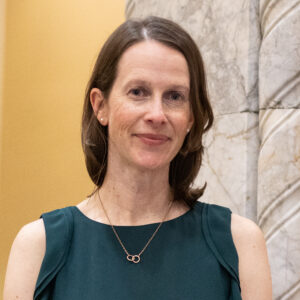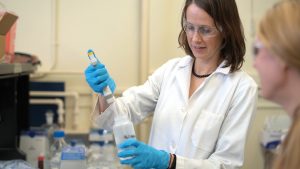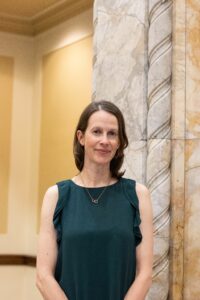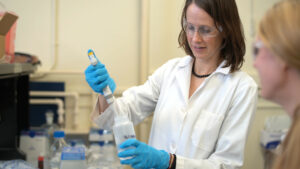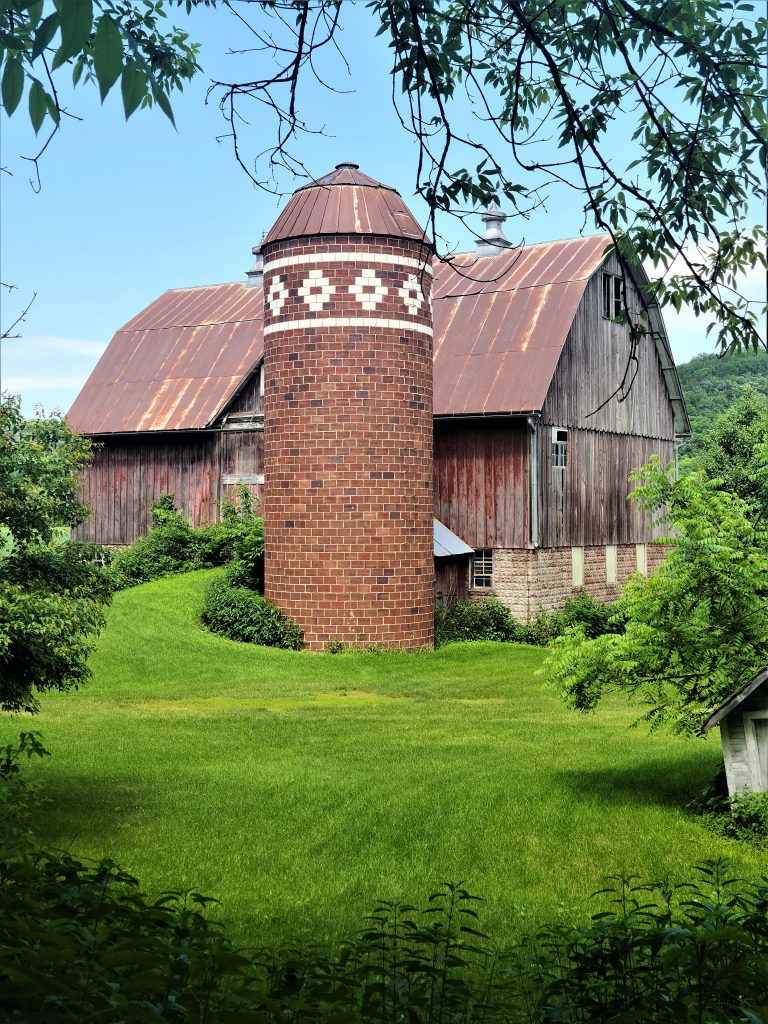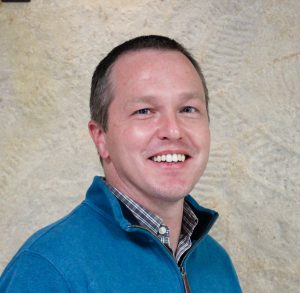Hart wins prestigious outreach award in honor of service to Wisconsin
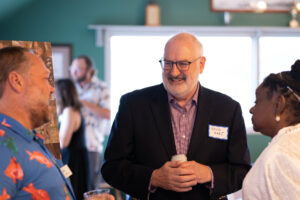
David Hart (center) talks with Sea Grant Fisheries Specialist Titus Seilheimer and Congresswoman Gwen Moore.
David Hart has been named the winner of the 2024 Robert and Carroll Heideman Award for Excellence in Public Service and Outreach for the University of Wisconsin-Madison. The award will be officially conferred during an award ceremony the evening of April 24.
Hart is the assistant director for extension and is also a specialist in geographic information science, urban planning and coastal managements skills.
“I’ve had a lifelong fascination with maps and nature. I remember when I realized that fascination could lead to a career. I love applying geographic information science to better understand the Great Lakes and finding those moments when it becomes clear that something you’ve done has had an impact to make things better,” Hart said.
His embodiment of the Wisconsin Idea, the tenet that the boundaries of the university are the boundaries of the state and the expertise of the campus is used for the benefit of the state’s residents, led him to the honor.
“I work at an organization with great people advancing an important mission to enhance the conservation and health of Great Lakes resources and the well-being of Great Lakes communities,” he said. “I feel the award is a reflection of those people and that mission and I’m humbled and honored of the recognition that comes with it.”
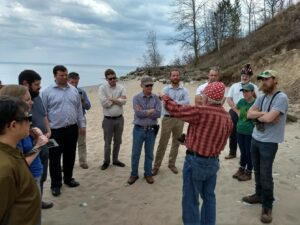
David Hart (facing camera and third from the right) convenes field trips and invites speakers, such as this one, where a geoscientist is discussing the effects of Lake Michigan on surrounding beaches and bluffs. This convening of local officials and scientists is one of the hallmarks of Hart’s work to expand the Wisconsin Idea.
This award is given to an individual who reflects the public service mission of the university. That public service was highlighted by those who wrote to support his nomination. One state-level official said, “He led development of the Wisconsin Coastal Atlas and the Wisconsin Coastal Guide, both of which remain important online tools for viewing and exploring information about the Great Lakes. Professional planners and resource managers regularly use the Coastal Atlas to explore and analyze coastal issues, share coastal data and inform decision-making about sustainable use of the Great Lakes. Consistent with the Wisconsin Idea, this tool makes the knowledge and expertise of the university available to a wide range of users.”
The writer continued, “David’s efforts to network Wisconsin’s Coastal Atlas with similar tools via the internet has allowed stakeholders to investigate the effects of complex issues—like climate change and invasive species—more rigorously and on more appropriate scales. Similarly, the Wisconsin Coastal Guide helps recreationalists and tourists find coastal information leading to deeper experiences with our Great Lakes.”
In addition to Hart’s own geospatial technology work, he oversees the efforts of 13 outreach specialists. The specialists both solicit thoughts about local needs, seeking to find solutions and offer resources, as well as share their knowledge and the findings born of Sea Grant research. The team of specialists are leaders in fisheries, coastal engineering, tourism, climate change, coastal community challenges, food fish outreach, aquaculture, social science, emerging contaminants, aquatic invasive species, education and workforce development.
One of Hart’s colleagues who fills a similar role with Michigan Sea Grant said, “David consistently demonstrates his competency and willingness to work effectively with others for the common good. And, when misunderstandings inevitably happen, David humbly invites others into conversations that need to repair any misunderstandings and identify how to move forward together, including when it involves modifying procedures, creating best practices, or reprioritizing current tasks to create an optimal, collaborative working environment that values and includes all perspectives.”
With award-winning work behind him, Hart stressed he will continue efforts to advance the Wisconsin Idea. “I’m currently collaborating with planners, cartographers and environmental educators to address coastal natural hazards, enhance public access to the coast, use story maps to share Great Lakes natural and cultural heritage and apply a process called geodesign that links scenario planning and impact simulation to promote green stormwater infrastructure.”
The post Hart wins prestigious outreach award in honor of service to Wisconsin first appeared on Wisconsin Sea Grant.News Releases | Wisconsin Sea Grant
News Releases | Wisconsin Sea Grant
https://www.seagrant.wisc.edu/news/hart-wins-prestigious-outreach-award-in-honor-of-service-to-wisconsin/

